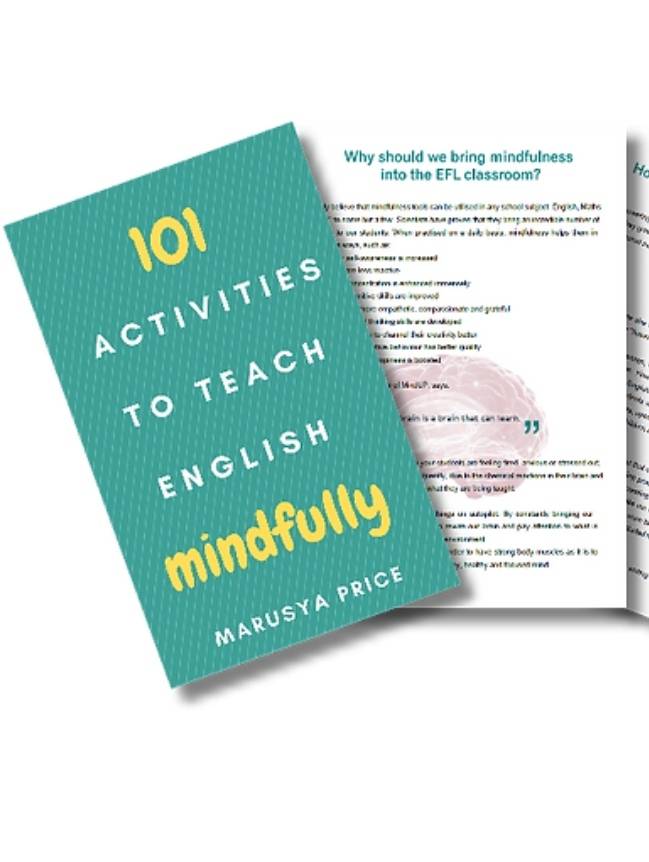English Summer Camp Ideas to Boost Enrolments.
English Summer Camps ideas that can boost enrolments are what you probably need now. English Summer Camps planning is in full swing at the moment. Language services in ELT find an extra resource of revenue in offering summer camps. Also, it is an excellent way to demonstrate how professional your language services are. What’s more, English summer camps can be an effective marketing opportunity if done well. It is your unique chance to get your name known by more parents and consequently increase enrolments in the autumn. However, the competition is fierce in the market for summer camps. What to do? Boost your summer camp with ideas from the latest trends in education and make it shine!

Hi! I’m Gina Rodriguez and the founder of GR School Marketing. I support language schools in building an engaging social media presence through training and tailored social media marketing strategies.
Vision: I believe that successful language schools are the ones that teach the language as a tool that empowers students . My services are designed to foster a culture of continuous improvement and innovation so that schools can thrive and every unique offer can be showcased effectively online.
Make your English Summer Camp shine this summer
Plan an English summer camp that brings value to students and families and offers opportunities they do not have at school throughout the academic year.
One way of doing so is by organizing courses and workshops that have the latest education trends at their heart.
English summer camps need to be fun and different from the English language course during the academic year. Show that you are ahead of the game and keeping abreast of the latest trends in education through innovative courses that offer:
- Debating 🗣️
- Digital Literacy 💻
- Mindfulness 🧘♀️
I’m going to write about these three trends to give you a starting point. However, you may want other education trends as well such as STEM, coding, Social-Emotional Learning and Sustainability just to mention a few. To learn about education trends impacting ELT in 2024 read this blog article.
1. Debating
Debating helps students sharpen their speaking prowess and develop confidence in public speaking. It also improves critical thinking skills and emotional control. All of these are essential for the student’s future career as well as in everyday life. For this reason, it has become really popular and there are schools in the US, Canada and the UK offering debate courses. So why not try one for your summer camp?
“Perhaps most important of all, a debate is fun! You may have to cajole your son or daughter to go to their test prep class or do their homework, but debate makes learning a game; students build their critical thinking and speaking skills without it ever feeling like work”. (From Standford.edu )
In Italy, Debating is beginning to grow and there are already some state schools offering it in various subjects as you can see in this article from “Donna Moderna” an Italian magazine.
Tempted to try introducing debating this summer? Yes, but don’t know where to start? Then have a look at the presentation by Asimenia Feathan at the Eaquals conference to gather ideas on how to get started with debates in your summer camp. Click here
For ready-made resources visit The Noisy Classroom which is an organization that promotes and supports the use of speaking and listening in the classroom.
“We help teachers use a range of debate, discussion, dialogue, role play and enquiry as part of the Noisy Learning experience.”
The Noisy classroom
If you organize debates in your summer camp, invite parents to come and watch the debates. It will be your best marketing strategy this summer!
Pro tip: market debate as an opportunity to learn skills that will support students in their future professional and personal lives!
2. Digital Literacy
The American Library Association (ALA) defines digital literacy as “the ability to use information and communication technologies to find, evaluate, create, and communicate information, requiring both cognitive and technical skills.”
It’s widely believed that the young generation is digitally able, however, research has shown that it’s a myth!
It is true that students use technology for entertainment and social media but this doesn’t mean that they are digitally literate. Actually, they need guidance in using technology for educational and professional purposes.
While students will be familiar with communicating online they still need guidance with netiquette, digital footprint, digital well-being, internet safety, social media presence, and online research just to mention a few.
«Digital Literacies are the essential skills our students need to acquire for full participation in the world beyond the classroom. They can also enrich our students’ learning inside the classroom.»
Mark Pegrum, Associate Professor of Education at the University of Western Australia and author of “Digital Literacies” , Routledge.
When using technology for digital learning students need guidance with:
- Managing passwords
- Participating effectively in online communities
- Creating and sharing content online
- Respecting ownership and avoiding plagiarism
- Evaluating the credibility of information
- Managing digital distractions
- Dealing with cyberbullying.
So why not weave digital literacy into your summer courses? Speaking activities about the topics above, surveys, projects and presentations will foster digital literacy and will raise awareness and help students become digitally literate.
For Digital Literacy FREE resources and lesson ideas for your English summer course check the portal of Safer Internet.
Pro Tip: Make sure students produce something digital ( a video story, a digital presentation or a project)to share with parents. Parents like seeing the results of what they’ve invested in. On top of being a meaningful experience for the students, it is a powerful way to become top of parents’ minds.
3. Mindfulness
Mindfulness—defined by Jon Kabat-Zinn as “the awareness that emerges through paying attention on purpose, in the present moment, non-judgmentally”—can bring reduced levels of stress and anxiety, increased focus and self-regulation, and improved academic performance and sleep, among others. (Source Mindful.org)
Today children and teens are faced with an unprecedented amount of stress and anxiety so mindfulness plays a crucial role in helping them learn more and better. The reason for this is that through mindfulness activities students lower their affective filter and therefore are more prone to take in the input.

Marusya Price is an EFL teacher specialising in teaching English with Mindfulness. Her book, “101 Activities to teach English Mindfully” is packed with activities that promote kindness, positivity, and gratitude through stories and visualisations. If you are keen to give mindfulness a try this summer this publication is for you. I had a lovely interview with Marusya on Instagram about using Mindfulness in the EFL classroom. Watch it and discover how your students (and yourself) can benefit from it.
Pro Tip: make sure you get feedback and keep a record of your students’ testimonials to share on social media.
Find a place in the sun!
The English Summer Camp ideas shared here are a good starting point if you are looking to boost your courses and your school’s reputation in the community.
If you need support in finding alternative ideas to boost your English summer camps do get in touch. I would be delighted to help you with marketing your English Summer Camps so feel free to book a no-obligation call with me. Get in touch through the contact form. Click here!


